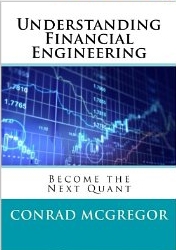Of course the government goes to the extreme and is talking about “Banning ‘Naked’ Default Swaps“. Let me first say that Barney Frank is a bloody idiot. He kind of sounds like Elmer Fudd and his face makes you wonder just how corrupt our government is.
Credit Default Swaps are pretty simple instruments and I explained how they worked in “Financial Weapons of Mass Destruction and the Credit Crisis“. The problem in the CDS market is also rather simple to solve, but the way in which the market has been manipulated is quite complex. A credit default swap allows an investor to own a significant amount of a company’s debt, say General Electric, and hedge out all of the credit risk. First you buy $100,000,000 of GE debt, then you call up an investment bank and purchase $100,000,000 of CDS protection on GE with a similar underlying bond and similar maturity. Now you effectively own $100M of treasuries. Nifty. The complexity comes with the question: what if you buy $100M of GE debt, $500M of CDS protection on GE? Now the investor has a negative economic interest in General Electric debt, but they still have their rights as a bondholder such as putting the bond back, demanding repayment upon the breaking of a covenant, negotiations in restructuring the debt, a seat in bankruptcy court etc.
Let’s take this one massive step further. What would happen if you bought bonds, bought a ton of CDS protection, bought a bunch of stock, and sold a ton of equity forwards. Whoa, that’s a lot of transactions…let’s break that out:
- Buy $3B CIT Group Bonds
- Buy $6B CIT Group CDS
- Buy $1B CIT Group Stock
- Sell $2B CIT Group Equity Forwards
Let’s pick a point in time that this transaction could have occurred (but more reasonably it would be built up over time). Let’s just say it happened January 1, 2008. Five year CDS was trading at 383bps or 3.83% per year. The stock was trading at 23.84 meaning the market cap was about $9.3B at the time. So what we are saying is that Investor X has bought $3B in CIT bonds but overhedged that position and bought an 11% stake in CIT’s stock but overhedged that position as well. This means that Investor X has a negative economic exposure to CIT’s stocks and bonds, but a powerful say in how the company is managed. This idea was really brought to light by Henry Hu’s research paper “Debt, Equity, and Hybrid Decoupling: Governance and Systemic Risk Implications“.
How many companies have actually been brought to their knees by predators using derivatives to overhedge long positions? Could it be possible that Goldman had a $3B revolving loan facility but overhedged that position and actually would benefit from a CIT bankruptcy?



